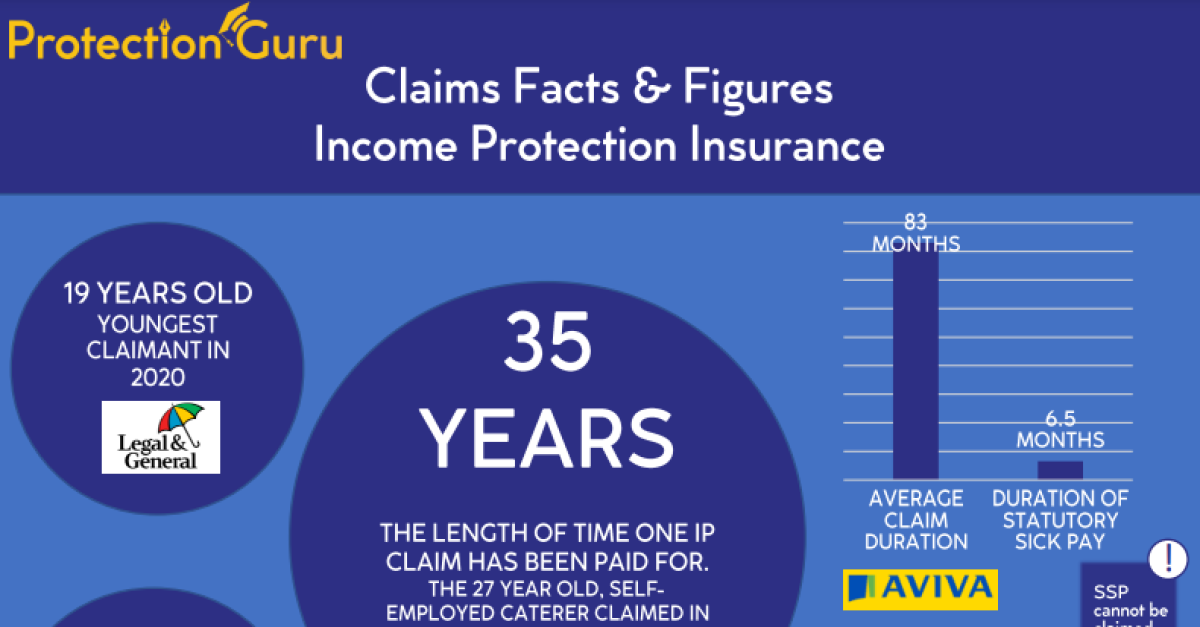
Do Clients Understand Income Protection? February Protection Forum Part 1

A study by Global Data of consumers who had bought income protection at the end of 2020 and into 2021, found that 55% of them thought that they were covered for redundancy – something that mostly stopped being covered when the pandemic hit. In the first session of our February Protection Forum, Adam Higgs asked attendees what cover they thought clients were looking for and how often they were finding that clients misunderstood the cover they had in place.
“When people come to me and ask about getting unemployment cover, I tell them that no, it isn’t readily available.”

Robyn Allen:
“Whenever anybody comes to me and I’m looking at old policies and there’s an element of unemployment cover, I make a massive deal of it. Especially nowadays, I really highlight the fact that this is rare now, this is a unicorn. Let’s see how this fits in. Let’s make sure this stays. And we’ve got that approach.
On the other side, I rarely get anybody coming to me asking about unemployment cover, and I have this amazing word that I learnt when people say, Is it readily available: “no.” It’s not a bad thing to say to customers that things aren’t– especially last year– that it’s not available. It doesn’t mean they’re going to suddenly turn away and not want to talk to you”.
“I think that if a client has had a conversation with an adviser, they will walk away understanding what IP does and does not do.”

Setul Mehta:
“My general observation is: starting with the adviser for the end client, very clear on the difference between IP and ASU and redundancy cover and all the other things that you could have in there. So there is a clarity. I’ve not met many, if any advisers who would who would merge the two significantly and believe that to the core.
I think then when it comes to observations I’ve had with conversations with advisers, with the client is it’s definitely very easy to differentiate the two, i.e. income protection and actually redundancy cover. I do hear that clients often do ask the question when they’re talking about income protection, “will it cover me if I am made redundant?” And there is a real clear answer to that and that will go on and have other conversations that spin off off the back of it. But my general view from an industry perspective is, there is clarity between what income protection does provide and how it does or more importantly, doesn’t link to redundancy cover.
So it’s a shame to read some of that sort of stuff. And I also think, press is press and articles are articles, and there’ll be some things in between. But I don’t think that’s a true representation in terms of the adviser community having conversation with the client. Do I think there are clients out there who genuinely believe that income protection does include a bit of redundancy cover? Yes, I do. Do I think if they’ve had a proper conversation with an adviser, I absolutely don’t believe that they will have walked away thinking IP includes redundancy cover as a core part of the contract.”
Adam Higgs: “Does the industry do enough to help consumers understand what they’re covered for, especially in regards to income protection?”
“Everyone explains and understands things differently, so I think it’s okay that there isn’t a single version, it’s about finding a level of clarity for both the advisers and clients. It’s harder to talk about what isn’t covered than what is.”

Setul Mehta:
“The industry does enough. I think we as an industry do loads, right. There is plenty of collateral material words out there when you think about insurers, distributors, manufacturers. I think, like all things, the difficulty always comes in terms of what is the sweet spot, what is that one really clinical way of describing something?
But the beauty of having however many advisers we have in the industry is we’re all different. People are different. People engage with people in different ways. So I don’t think you could even get a one size fits all because actually, that would all mean that we’re all going to do things in the same way and understand things in the same way. So I think it’s OK that we have lots of different versions, as nice as it would be to have one single version for everybody.
I do think there’s lots out there. I do think it is harder to talk about what isn’t covered than what is covered, but not impossible and not difficult. Because lots of people weren’t having the conversations we’ll talk about, even at a very simple level, non-disclosure and the impact that that would have on a protection policy. So I think there’s lots out there. Clients partly just need to listen more. And I don’t mean that in a disparaging way, by the way, because we know, especially if it’s along side of a mortgage often will be thought of as a key part of it. And looking around this room and protection advocates, we know you’d all disagree.
But no, I think we do a lot. It’s just trying to find that clarity and then clients understanding it with that same level of clarity and advisers being able to discuss it in the way that they do in the style that they do and having easy access to the information that they need.”
“Advisers use income protection but they don’t spend enough time explaining it to clients.”

Andrew Pinto:
“The quick answer is yes, I always do and clearly explain what they’re not covered for. And I think that helps the client to just better understand exactly what they do have. No, as I said in the chat, I apologise for using the word ‘sold’ because we shouldn’t ever be selling products as we all know.
But I think the income protection benefit is not spoken about enough by advisers to their clients. Going back to just a simple mortgage policy, a mortgage protection policy where the focus is on selling a life insurance policy to cover the mortgage. But what happens if that person can’t actually earn an income anymore? It’s as important as far as I’m concerned. It’s as important as being able to pay the mortgage off.
So, I think it’s something that that we as advisers use generally, obviously, but we as advisers don’t explain enough of to our clients exactly what income protection is, how it works, the mechanics of it, especially the waiting periods. I find a lot of clients that I speak to, new clients who have got income protection, when you have a look at their policies and they’ve got a three month or a six month waiting period, didn’t actually understand exactly what that meant. Now, whether that’s because they didn’t listen or they didn’t read their suitability letter or whatever, I don’t know what the answer to that is.”
“A lot of advisers are not confident what the outcome of an IP claim will be. I’ve had three recent examples where claims have gone adrift, one where the insurer said that the percentage of desk to manual work listed wasn’t accurate and so wouldn’t pay the claim.”

Angela Davidson:
“Going back to what Andrew’s just said about advisers, perhaps not discussing IP with clients. I’m going to put this out there. I think it’s because a lot of advisers are not certain of what the outcome would be of a claim. So there’s a lack of confidence there.
And what I have to say is, I’ve had three examples where claims of IP have gone a bit adrift. The last just a couple of days ago. And one of them in particular, we’re talking about clarity of cover and just does the client understand what they’re covered for?
The client took up income protection because they knew that it was a good thing. And I’ve got to say the adviser who actually dealt with that client is the real advocate for income protection, and they filled in the application and explained that it was a civil engineer. And yes, he did some manual work and did some paperwork, and the claim is gone and it’s been rejected, saying ‘well actually do a bit more manual than what you said.’ When it asks you to do the percentages of what’s manual, what’s sitting under the desk? I remember having difficulties when I was an adviser, getting people to think about who can you think, how what percentage you actually work at the desk or you work manually? That is, I think we’ve got to do something about that– or providers do.
But this guy was told, I’m sorry, we’re not willing to pay out for you. And because you possibly didn’t answer those percentages right. But I just think advisers are up against it, if that’s the outcome, of somebody who they’ve thought they were doing the very best for.”
Angela Davidson: “I just think there’s ambiguity there that almost might affect our advisers out there from even getting into IP because they’re worried that, ‘oh god, I’m going to end up where this one won’t pay out.'”
Adam Higgs: “This adviser, as you said, was a big advocate of IP– are they as big an advocate now, right?”
Angela Davidson: “His confidence has been knocked, it has. Which is a shame because he’s a good writer.”
“We know the information is covered at point of sale, but it’s about making sure clients retain and can recall that information.”
Toby Corden:
“It’s just really linking into that. I think recall of information after point of sale as Andy was saying in the chat, actually just that if you ask somebody what income protection covers and purely just by the name, I think a lot of people would actually, where they don’t know the product, they would probably count redundancy or it would be fairly high up on that list of things that people are probably going to reel off back.
We do actually put it in our suitability letter regarding the where it doesn’t cover that, that redundancy side of things as we find that we did need to make sure we specifically mention that as we would have someone coming back three or four years later and looking at that.
But it’s again, we’re certain that information’s being covered on the point of sale side of things. But that recall and perhaps where customers remembering the name of the product and it’s fairly high up on that list, I think is an expectation as to that it would be covered.”

















